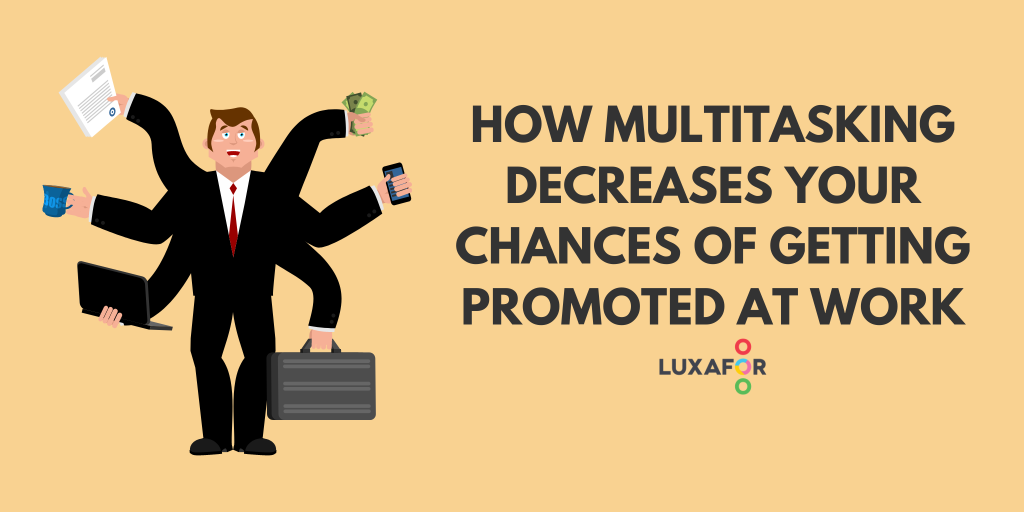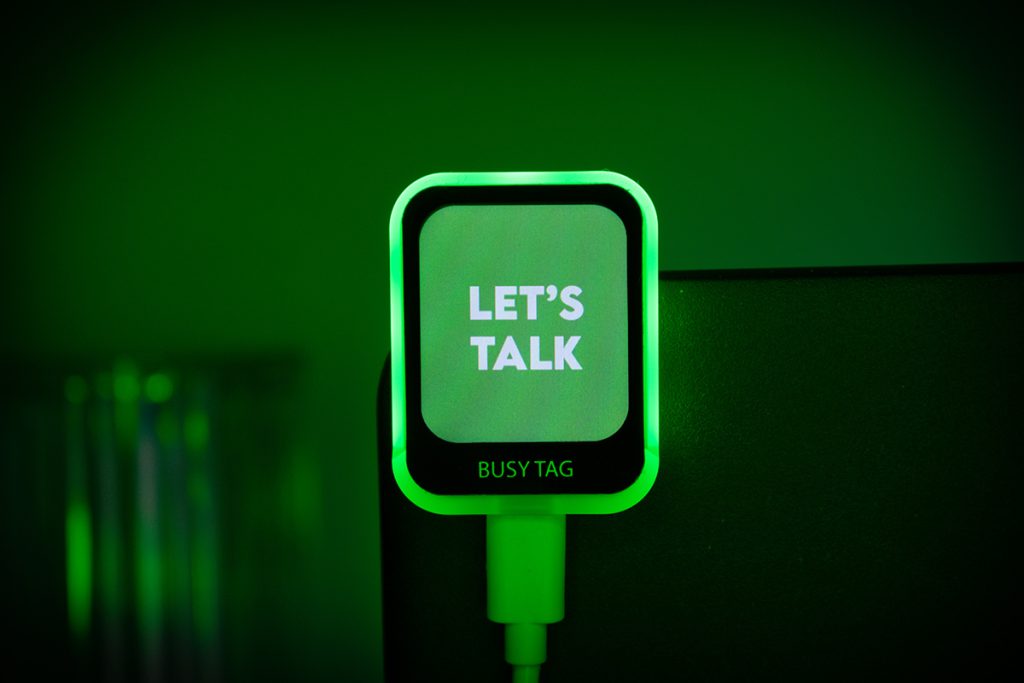Multitasking stops you from getting a promotion
- Updated on: February 5, 2025
The reason is that the human brain can only fully concentrate on one task at a time. So, before you begin working on something else, finish the previous task and let it go!
Giang refers to Cal Newport, Georgetown professor and author of Deep Work: Rules for Focused Success in a Distracted World, and reports the following: if you’re unable to accomplish important work that requires full focus, then you should probably change your job! If you can’t manage to do the crucial tasks that bring added value to the company, then you won’t grow professionally.
Different studies show that constantly switching from one task to another reduces “brain brightness.” Giang cites some research conducted by the University of London, which reveals that multitasking reduces IQ by 10 to 15 points. Someone who multitasks has the impression that they’re being super-productive when in reality, they’re working unproductively.
Companies may lose profit because of employees that multitask. Furthermore, constant multitasking leaves permanent damage to areas in brain that are responsible for controlling emotions and empathy. If you can’t properly organize your tasks, you can’t do them accurately.
Nowadays office environments are producers of busy multitaskers. The average workday can start with a meeting, then switch to work, then speak about yesterday’s problems, back to work, scroll some news, etc.
To stop multitasking, the way you handle tasks should be changed. To work more efficiently, you should have as much time as you can without interruption and distraction.
Do you want to build and maintain new habits? Get your free PDF version of the Don't Break The Chain calendar and start today!
Do you want to build and maintain new habits? Get your free PDF version of the Don't Break The Chain calendar and start today!
Multitasking stops you from getting a promotion
Recent Posts
- The Ultimate Guide to Managing Business Email and Deep Focus Time
- Manufacturing SEO Consultant Tips to Maximize Sales Productivity
- Future of Remote Work: Why Visual Availability Signals Can Reduce Meeting Overload
- Managing “Do Not Disturb” Culture in Open Offices and Remote Teams with Visual Status Lights
Tags
Archives
- January 2026
- December 2025
- November 2025
- October 2025
- September 2025
- August 2025
- July 2025
- June 2025
- May 2025
- February 2025
- January 2025
- December 2024
- November 2024
- October 2024
- September 2024
- August 2024
- July 2024
- June 2024
- May 2024
- April 2024
- March 2024
- February 2024
- January 2024
- December 2023
- November 2023
- October 2023
- September 2023
- August 2023
- July 2023
- June 2023
- May 2023
- April 2023
- March 2023
- February 2023
- January 2023
- December 2022
- November 2022
- October 2022
- September 2022
- August 2022
- July 2022
- June 2022
- May 2022
- April 2022
- March 2022
- February 2022
- January 2022
- December 2021
- November 2021
- October 2021
- September 2021
- August 2021
- July 2021
- June 2021
- May 2021
- April 2021
- March 2021
- February 2021
- January 2021
- December 2020
- November 2020
- October 2020
- September 2020
- August 2020
- July 2020
- June 2020
- May 2020
- April 2020
- March 2020
- December 2019
- November 2019
- October 2019
- September 2019
- August 2019
- July 2019
- April 2019
- March 2019
- January 2019
- December 2018
- November 2018
- October 2018
- September 2018
- August 2018
- July 2018
- June 2018
- August 2017
- May 2017
- April 2017
- February 2017
- January 2017
- November 2016
- October 2016
- September 2016
- August 2016
- July 2016
- June 2016
- May 2016
- April 2016
- March 2016
- February 2016
- January 2016











